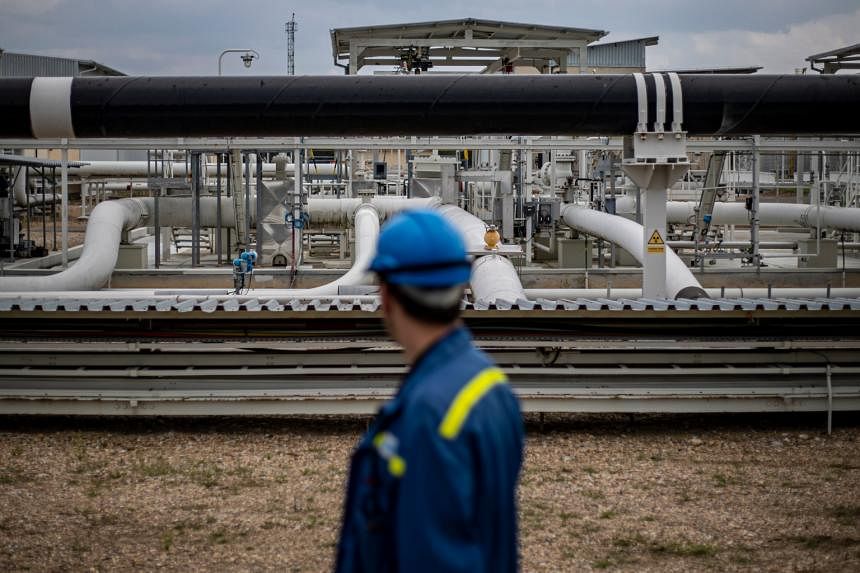SINGAPORE - Oil prices are likely to stay above US$100 a barrel this year, with growing concerns that sanctions on Russian energy exports and depleted stocks of alternative fuels will keep markets on the boil.
United Arab Emirates (UAE) financial executive Glenn Wepener told a conference at Suntec City Convention and Exhibition Centre that Brent crude could average US$108 a barrel, adding that he had adjusted this from an initial forecast of US$98.
Mr Wepener, executive director and chief strategist at First Abu Dhabi Bank, said depleted inventories of gas oil - a common home-heating fuel in Europe - are likely to bolster oil prices as Europe looks to alternatives.
He noted that gas oil stocks in Europe were now below the five-year average, with supplies facing disruptions amid the impending European Union (EU) ban on Moscow's oil, while the Kremlin's threat to further restrict gas supplies was exacerbating the supply crunch.
"It's going to be a tough one this winter for Europe. We will see a pickup in demand for oil again as we go into the autumn and the winter, despite the recent sell-off in oil," noted Mr Wepener, who was speaking at the first in-person seminar organised by the UAE Singapore Business Council.
"We are also going to see a lot more gas-to-oil switching, which is already happening now, but this will continue into the latter part of the year."
An International Energy Agency report earlier this month noted that rising natural gas and electricity prices have incentivised gas-to-oil switching in a number of countries
The report added that global oil demand was expected to increase by 2.1 million barrels per day (bpd) this year, to 99.7 million bpd, and by 2.1 million bpd next year when it is expected to surpass pre-Covid-19 levels to 101.8 million bpd.
The report also noted that its data confirmed increased oil burn in power generation, especially in Europe and the Middle East, but also across Asia, while fuel switching was occurring in European industry as well.
Ms Serena Huang, senior market analyst at oil analytics firm Vortexa, said the gas oil market is likely to tighten in the coming months: "Europe will look towards importing more barrels from the US, Middle East and Asia, but this will be limited by available refining capacity, which has shrunk over the past years, with several refiners permanently shutting operations.
"This is not withstanding any potential hurricane disruptions to US Gulf Coast refining operations, which could further reduce supplies at a time when global gas oil stocks are still below the five-year average levels."
Mr Wepener said his forecast for oil next year was pegged at US$97 a barrel, taking into account that there could be a recession in Europe and probably the United States - albeit a mild one - while adding that the US Federal Reserve would likely soften its rate outlook towards the end of 2023.
Industry sources noted at the conference, which attracted about 100 participants, that the competing outlooks on the oil market will keep volatility high, and would inevitably impact the investment outlook for many firms in the energy and petrochemicals sector.

During a panel discussion, Mr Robert Dompeling, group chief executive of Singapore-listed engineering firm PEC, said the increased volatility is forcing clients to take a more cautious approach towards big investment projects.
He noted: "During Covid-19, big investments basically came to a standstill, while new projects were not initiated.
"Before the war started, things were looking better but now that uncertainty is back in the market again, some of our clients are saying, 'Let's wait and see a little bit later'."


